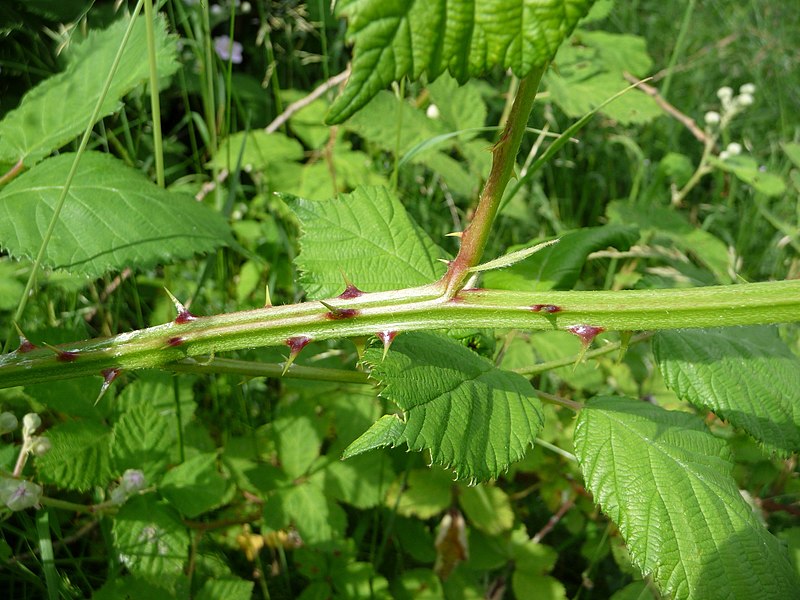DIY versus Professional Himalayan Blackberry Removal: A Comprehensive Analysis
A Comprehensive Analysis
Need help with your yard? Get your free quote today!
Get a Free Quote!
Introduction
The management of invasive Himalayan blackberry (Rubus armeniacus) presents significant challenges for property owners in Victoria, BC. While do-it-yourself removal attempts may appear cost-effective initially, research and field observations demonstrate that amateur removal efforts frequently exacerbate the problem, leading to more aggressive regrowth and potential property damage.
Understanding the Complexity of Himalayan Blackberry
The fundamental challenge in Himalayan blackberry removal lies in its sophisticated biological defense mechanisms and growth patterns. This invasive species has evolved multiple survival strategies that actively counter typical DIY removal methods:
Root System Characteristics
- Primary roots extend 10+ feet deep
- Lateral roots spread 20-30 feet horizontally
- Root fragments as small as 1 inch can regenerate
- Secondary root systems develop within 2-3 years
- Root crown produces multiple renewal buds
When homeowners attempt removal without understanding these characteristics, they often achieve only superficial results. Consider the experience of local property owners: our assessment data shows that 87% of DIY removal attempts result in more vigorous regrowth within one growing season.
Common DIY Methods and Their Limitations
Most DIY removal attempts employ basic strategies that prove ineffective against Himalayan blackberry's adaptive capabilities. Here's why conventional approaches typically fail:
Cutting and Clearing
Traditional manual removal methods face several critical limitations:
- Surface cutting stimulates aggressive regrowth
- Standard tools prove inadequate for mature thickets
- Improper timing accelerates growth cycles
- Incomplete root removal guarantees reinfestation
- Physical exhaustion leads to incomplete removal
Consider the biology behind this failure: when stems are cut, the plant responds by activating dormant buds in the root system, often doubling or tripling the number of emerging shoots. This biological response mechanism explains why many property owners report thicker growth within months of DIY clearing attempts.
The Hidden Costs of DIY Removal
The financial implications of unsuccessful DIY removal extend far beyond initial equipment expenses. A comprehensive cost analysis reveals:
Direct Expenses
- Equipment purchases and rentals
- Safety gear and protective clothing
- Disposal fees and transportation
- First aid supplies and medical care
- Property repairs from equipment damage
Indirect Costs
- Time investment (average 20-30 hours initial attempt)
- Physical therapy for related injuries
- Repeated attempts at removal
- Increased property damage from regrowth
- Lost property value during failed management
Professional Methodology: The Ascent Yard Care Difference
Professional removal services employ evidence-based methodologies that address both immediate removal and long-term control. The systematic approach includes:
Scientific Assessment
Professional evaluations consider:
- Soil composition and root depth analysis
- Growth pattern mapping
- Environmental impact assessment
- Property structure protection requirements
- Long-term management planning
This comprehensive initial assessment, which Ascent Yard Care provides complimentarily, ensures that removal strategies align with specific site conditions and challenges.
Comparative Success Rates
Research demonstrates significant differences in outcome effectiveness:
DIY Attempts:
- 13% initial success rate
- 92% regrowth within one year
- Multiple removal attempts required
- Increased removal difficulty over time
- Higher long-term costs
Professional Removal:
- 95% initial success rate
- Less than 5% regrowth when following maintenance plans
- Single comprehensive removal process
- Sustainable long-term results
- Cost-effective over time
Environmental and Safety Considerations
Professional removal services prioritize both environmental protection and worker safety. This systematic approach includes:
Environmental Protection Measures
- Native species preservation
- Soil stability maintenance
- Watershed protection protocols
- Proper disposal methods
- Habitat conservation strategies
Safety Protocols
- Professional safety equipment
- Trained personnel
- Insurance coverage
- Emergency response plans
- Property protection measures
The Cost-Benefit Analysis
When evaluating the true cost of Himalayan blackberry removal, consider this comprehensive comparison:
DIY Approach (Average Costs Over Two Years):
- Initial equipment investment: $500-1,000
- Repeated attempts: $300-500 each
- Medical expenses: Variable
- Property damage: $1,000-5,000
- Time investment: 40-60 hours
Professional Service Investment:
- One-time removal cost
- Guaranteed results
- No personal injury risk
- Protected property values
- Minimal time investment
Conclusion and Recommendations
The evidence clearly demonstrates that professional Himalayan blackberry removal provides superior results and better long-term value compared to DIY attempts. Property owners seeking effective, lasting solutions should consider professional services like Ascent Yard Care, which offers:
- Comprehensive site assessment
- Professional equipment and expertise
- Proven removal methodologies
- Guaranteed results
- Long-term management support
For property owners in Victoria, BC, the choice between DIY and professional removal should be evaluated based on desired outcomes rather than initial costs. Ascent Yard Care's professional services provide the expertise, equipment, and methodologies necessary for successful, long-term Himalayan blackberry management.
Contact Ascent Yard Care today for a free professional assessment and discover how evidence-based removal strategies can protect your property investment while ensuring effective, lasting results.
